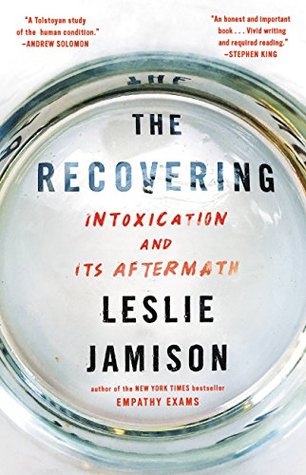More on this book
Community
Kindle Notes & Highlights
Read between
April 6 - July 1, 2018
when the craving had gotten so deep there wasn’t much of me that wasn’t committed to either serving or fighting it.
my humility imperiled by my storytelling prowess.
In recovery, I found a community that resisted what I’d always been told about stories—that they had to be unique—suggesting instead that a story was most useful when it wasn’t unique at all, when it understood itself as something that had been lived before and would be lived again. Our stories were valuable because of this redundancy, not despite it. Originality wasn’t the ideal, and beauty wasn’t the point.
In John Barleycorn, a novel published in 1913, Jack London conjured two kinds of drunks: the ones who stumbled through the gutters hallucinating “blue mice and pink elephants,” and the ones to whom the “white light of alcohol” had granted access to bleak truths: “the pitiless, spectral syllogisms of the white logic.”
I didn’t just need Daniel to want me; I needed him to want everything with me. Anything less seemed like rejection. For him, I imagine this was somewhat exhausting. I had no stomach for that murky state that came between being strangers and being passionately committed for the rest of our lives—in other words, dating.
I didn’t worry about her coming out of remission, and didn’t even worry about getting HPV myself; I only worried I would never mean as much to him as she had.
My ability to find drunken dysfunction appealing—to fetishize its relationship to genius—was a privilege of having never really suffered.
My fascination owed a debt to what Susan Sontag calls the “nihilistic and sentimental idea of ‘the interesting.’”
a canon whose boundaries I hadn’t yet come to see as deeply limited—addiction seemed generative. It seemed very much like interior décor, an accessory that spoke to inner depths.
song. If the mythic male drunk manages a thrilling abandon—the reckless, self-destructive pursuit of truth—his female counterpart is more often understood as guilty of abandonment, the crime of failing at care. Her drinking has violated the central commandment of her gender, Thou shalt care for others, and revealed itself as an intrinsically selfish abnegation of that duty. Her self-pity compounds the crime by directing her concern away from an implicit other—real or imagined, child or spouse—and funneling that concern back toward herself.
cheesecake with raspberry-mango coulis; goat cheese and Swiss chard tartlets. This journal was the truth of me: I wanted to spend every single moment of my life eating everything. The journal that recorded what I actually ate was just a mask—the impossible person I wanted to be, someone who didn’t need anything at all.
I had two longings and one was fighting the other,” Rhys once wrote in her journal. “I wanted to be loved and I wanted to be always alone.”
My skin is the right color to permit my intoxication. When it comes to addiction, the abstraction of privilege is ultimately a question of what type of story gets told about your body: Do you need to be shielded from harm, or prevented from causing it? My body has been understood as something to be protected, rather than something to be protected from.
It’s true that people loved getting fucked up long before capitalism, but it’s also true that one of the core promises of capitalism—transformation through consumption—is another version of the promise addiction makes.
I’ll always associate sobriety with a quality of light that I’ve only ever seen in the broad winter horizons of Iowa: hard, expansive, exposing. It came from huge and frozen skies, their dwarfing blue, and glinted off snow mounds the size of bedrooms. I was nothing but naked in it—a brightness so clean and uncluttered it hurt.


